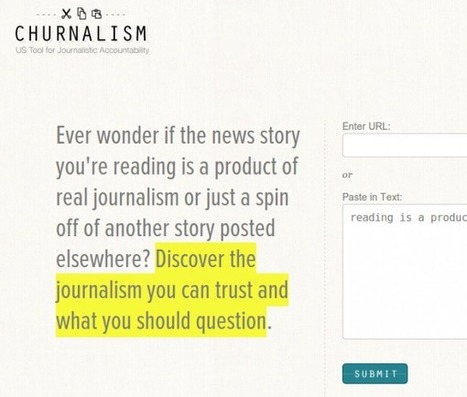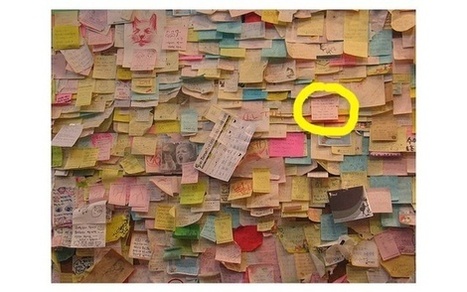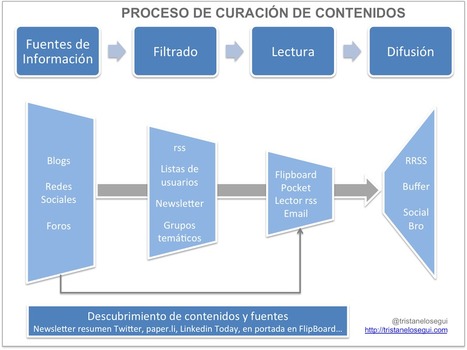El tema de la copia de textos sin autorización, del uso incorrecto de la licencia del contenido disponible en la web y del plagio en trabajos académicos (churnalism, herramienta para detectar plagio en documentos http://t.co/LUUSQFUJDA)...
Get Started for FREE
Sign up with Facebook Sign up with X
I don't have a Facebook or a X account

 Your new post is loading... Your new post is loading...
 Your new post is loading... Your new post is loading...

Claudio A. Clarenc's comment,
March 26, 2013 11:00 AM
Qué bueno Alberto. Te invito a compartir la experiencia en www.congresoelearning.org en el ciclo de charlas y conferencias semanales.
|

Mauro Hernandez's curator insight,
April 7, 2013 10:41 AM
Tema que esta en el tapete de la discusión
Sample Student's curator insight,
May 5, 2015 10:14 PM
We often ask our students to create annotated bibliographies, and this focuses on their capacity to evaluate and make decisions about the validity, reliability and relevance of sources they have found. using Scoop.it, we can ask them to do much the same thing, but they will publish their ideas for an audience, and will also be able to provide and use peer feedback to enhance and tighten up their thinking. This is relevant to any curriculum area. Of course it is dependent on schools being able to access any social media, but rather than thinking about what is impossible, perhaps we could start thinking about what is possible and lobbying for change.
Sample Student's curator insight,
May 5, 2015 10:18 PM
We often ask our students to create annotated bibliographies, and this focuses on their capacity to evaluate and make decisions about the validity, reliability and relevance of sources they have found. Using Scoop.it, we can ask them to do much the same thing. But they will publish their ideas for an audience, and will also be able to provide and use peer feedback to enhance and tighten up their thinking. This is relevant to any age, and any curriculum area. Of course it is dependent on schools being able to access social media. But rather than thinking about what is impossible, perhaps we should start thinking about what is possible, and lobbying for change. Could you use a Scoop.it collection as an assessment task?

Alberto del Mazo's comment,
December 17, 2012 5:12 AM
Hace apenas unos días dejé un comentario en un blog de psicopedagogía advirtiendo a la autora que sus últimas dos entradas eran copia literal, palabra por palabra, de otro blog y que no citaba ni siquiera la fuente. Mi comentario fue borrado, esa persona dejó de seguir mi blog, sus entradas plagiadas no desaparecieron ni cambiaron … y no obtuve ninguna respuesta ...

Mariano Sbert Balaguer's comment,
December 17, 2012 4:16 PM
Prácticas como la que tu comentas son las que no deberian existir.A cada cual lo suyo. Cada uno debemos buscarnos nuestro valor añadido. Gracias por leerme y compartirme
|











![Los estudiantes como "curadores" de sus propios contenidos de aprendizaje [EN] / Students as Curators of Their Learning Topics | Orientación y Educación - Lecturas | Scoop.it](https://img.scoop.it/G289JZgUs7h37zQUKmcVYTl72eJkfbmt4t8yenImKBVvK0kTmF0xjctABnaLJIm9)







Una de las cosas que más me enfada cuando leo blogs o tuits es que me tomen el pelo y volver a encontrar esos contenidos en sus páginas originales. No plagiar e incluir la referencia a los autores debería ser un principio de ética básica para los creadores y/o curadores de contenidos. En esta entrada se mencionan algunas herramientas para detectar plagios, aunque muchas veces basta con teclear un fragmento en google para encontrar la fuente original.